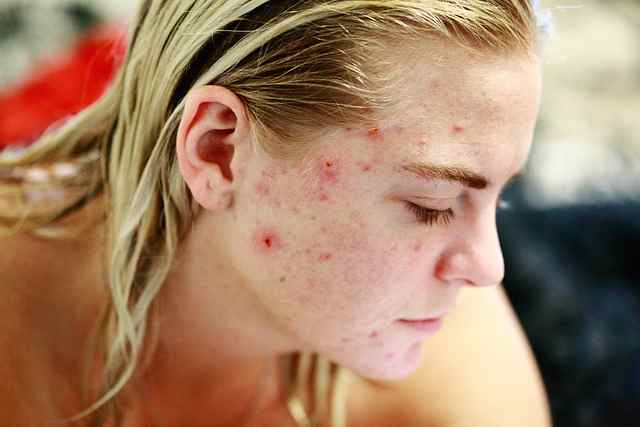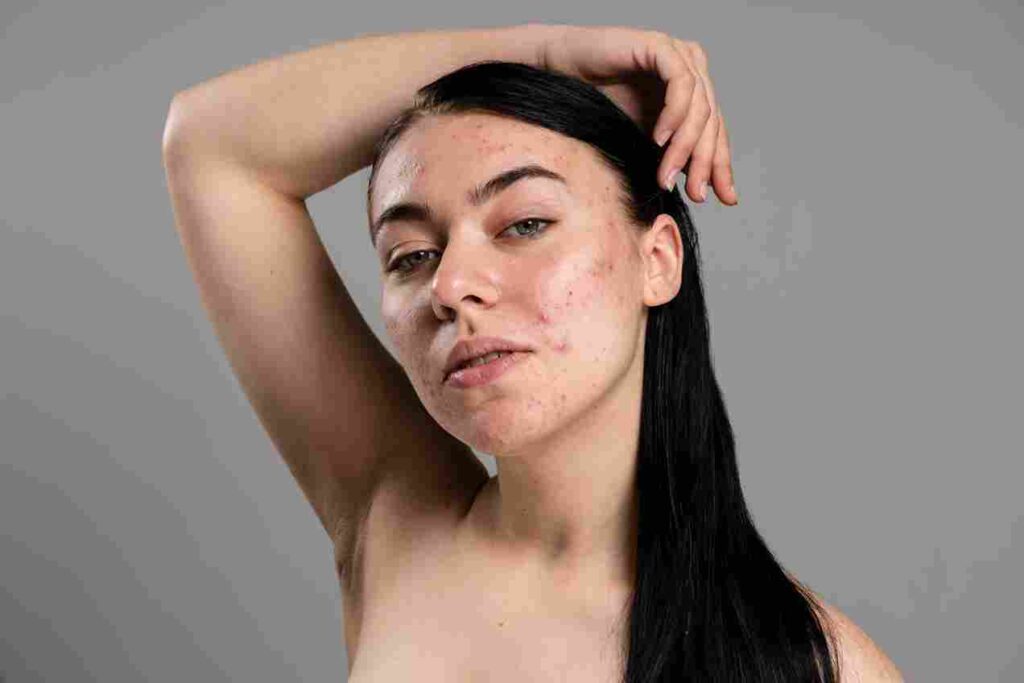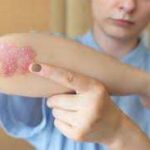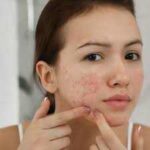Acne is a common skin disorder in which tiny holes in the skin known as hair follicles, and oil glands become clogged or blocked. This leads to the outbreak of lesions commonly known as pimples and zits. This condition usually occurs during puberty because hormonal changes increase the amount of oil that the skin produces, which can clog pores. However, a person can get acne at almost any age.
Symptoms & Causes
Symptoms:
Acne can be found almost anywhere on the body, but mostly it appears on the face, chest, neck, and shoulders.
Some of the symptoms of acne include the following:
- Small, tender red bumps (papules)
- Blocked pores with a black plug known as “blackheads”
- Large, painful red bumps under the skin
- Small white spots under the skin
- Painful fluid-filled pus under the skin

What Causes Acne?
Various internal and external factors lead to the rise of hormone levels in the body and result in the over-secretion of sebum. Acne usually occurs when tiny holes on the surface of the skin known as hair follicles get blocked with oil and skin cells. This blockage is known as a “plug or comedone.
The other causes of acne include:
- Hereditary: If you have a family history of acne, there is a high possibility that you can also develop it.
- Stress and anxiety: Stress directly affects the level of hormones known as cortisol and adrenaline, which stimulate your oil glands and increase the production of oil and clogged pores.
- Certain medications that contain androgens or lithium can make acne worse.
- Frequent touching and repeated friction on the face can aggravate acne.
Acne Triggers: Things That May Worsen Your Acne
Acne triggers vary from person to person, what triggers your acne may not be considered acne triggers for others. A trigger usually depends on the severity of the condition.
Certain things in our environment can make an acne breakout worse.
Let’s have a look at some of the common acne triggers that lead to flare-ups.
- Hormonal Factors
Some hormonal imbalances in a person’s body can lead to the development of acne or worsen the condition. Hormones like androgens stimulate the sebaceous glands, which increase the production of skin oil, or sebum. This excess production of oil creates the perfect environment for pimples and acne to develop.
2. Lifestyle Factors
Some lifestyle changes, such as smoking, alcohol consumption, and dietary changes, can trigger the condition. An unhygienic condition can also lead to acne on body parts such as the face, neck, chest, and shoulders. Therefore, make sure you clean your bed sheets, clothes, and towels to avoid acne triggers.
Certain kind of food that triggers acne such as sugar and dairy products, should be avoided, especially if you’re prone to break-outs. In addition to that, fried and greasy food, chocolates and iodine-rich items are all food that triggers acne and should be eliminated from the diet.

3. Genetic Factors
If you have a family history of any acne condition or your parents had acne, then there is a strong possibility that you can experience acne issues in the future. However, you can prevent it by choosing a healthy lifestyle and eating habits. Through this, you can reduce and restrict the growth of acne-causing bacteria.
4. Environmental Factors
Excess exposure to sunrays and certain weather conditions, such as high humidity, causes sweaty skin and increases the production of sebum. Air pollution can also damage the skin and lead to inflammation and acne-causing pimples. The dust particles present in the polluted air block the skin pores or hair follicles.

CONCLUSION
Acne is an inflammatory skin condition that occurs due to the blockage of skin pores known as hair follicles. Symptoms of acne can usually be seen on the face, neck, and back areas. It is the most common skin condition among people and can impact your mental health and self-esteem. We discussed various factors, such as environmental, hormonal, and eating habits, that can act as acne triggers and worsen the skin condition. Therefore, try to follow a healthy lifestyle and diet to prevent the development of acne.
You can get a variety of treatment options for your acne type at Ayursparsh Clinic & Panchakarma Centre, a well-known wellness clinic in Dharwad, Karnataka.
To treat your acne with a personalised treatment plan, consult Dr. Rashmi Patil, who is an expert at treating various skin conditions such as acne, eczema, and psoriasis.




